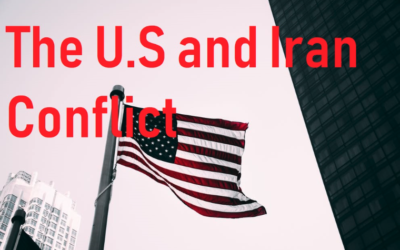In early October 2023, a fresh wave of violence erupted in the Middle East as Israel declared war on Hamas, a militant Islamist organization that has ruled the Gaza Strip since 2006.
This latest clash, part of a long-standing and deeply complex conflict, carries far-reaching implications, including potential repercussions on global oil markets.
To fully comprehend the potential impact on the world’s economy, it is essential to delve into the historical context, Arab state involvement, and the intricate interplay of regional dynamics.
A Little Background and History
The Israel-Palestine conflict has its roots in the post-World War II era. In 1947, the United Nations partitioned the British Mandate of Palestine into Arab and Jewish states, leading to the establishment of the State of Israel in 1948.
This event triggered the first Arab-Israeli War, resulting in the displacement of 750,000 Palestinians and the division of the land into Israel, the West Bank, and the Gaza Strip.

Tensions simmered over the years, with conflicts such as the 1956 Suez Crisis and the Six-Day War in 1967 further shaping the landscape of the Middle East.
Though the 1979 Camp David Accords improved relations between Israel and its neighbours, the issue of Palestinian self-determination remained unresolved.
In recent decades, the region has witnessed periodic outbreaks of violence, including the 2014 conflict between Israel and Hamas, the subsequent violent incidents in 2015, and the demonstrations along the Gaza-Israel border in 2018.
Throughout this period, the political divide between Fatah in the West Bank and Hamas in Gaza remained largely unhealed.
The current conflict, ignited by Hamas’ attacks on Israel, underscores the continued plight of the Palestinian people living under Israeli occupation.
The international community is deeply concerned about the well-being of civilians on both sides, as well as those held hostage by militants in Gaza.
Arab State Involvement
Several Arab states have expressed their views on the ongoing conflict:
Qatar – Qatar, a staunch opponent of normalizing relations with Israel, blames Israel for the escalation due to repeated violations of Palestinian rights. Qatar has called for international accountability, support for Palestinian self-determination, and a two-state solution.
Saudi Arabia – Riyadh is closely monitoring the situation and calls for an immediate suspension of hostilities, emphasizing the need to protect civilians and work toward a peaceful, two-state solution.

Syria and Yemen – Syria praised Hamas for its operation and voiced solidarity with the Palestinian people. Houthi rebels in Yemen also expressed their support for the Palestinian cause and called the operation a “war for dignity, pride, and defense.”
Lebanon Hezbollah – Lebanon’s Hezbollah commended Hamas for its operation and conveyed its support for the Palestinian people’s resistance.
Impact on Oil Markets
The ongoing conflict has the potential to impact global oil markets in several ways. If the crisis escalates to involve Hezbollah or Iran, there may be calls to tighten restrictions on Iranian oil shipments, which have increased in recent months.
Additionally, normalization discussions between Saudi Arabia and Israel may be halted, potentially affecting US-Saudi cooperation.
At the time of writing, Brent crude prices had surged to approximately $89 per barrel before a slight drop. The market, however, does not appear to be overly concerned about a significant disruption in supply or demand.

Geopolitical risks in the Middle East can create a risk premium, but a substantial price impact may require the involvement of more nations and non-state actors.
Israel’s role in the conflict is unique as it produces very little oil but plays a crucial role in the natural gas market.
The nation’s halt in production at its Tamar gas field could lead to a supply deficit and necessitate government intervention.
The key wildcard is Iran, which could influence the market significantly. If it is proven that Iran supported Hamas’ attacks, there may be an increase in sanctions on Iranian oil exports, which could disrupt global oil supply further.
Iran’s increased oil shipments in recent months have already offset production cuts by Saudi Arabia and other producers.
The conflict could also expand to involve Lebanon and Iran, with Israeli strikes on both nations being a possibility.

During periods of high regional tension, Iran has a history of targeting tankers in the Persian Gulf and supporting non-state actors across the region.
Saudi-Iranian ties have improved recently, potentially mitigating the impact of regional conflicts.
For now, the oil market is not expected to undergo drastic changes in response to these events. OPEC+ members, led by Saudi Arabia, are likely to assess the situation but are not anticipated to make immediate decisions based on short-term volatility.
As the Israel-Hamas conflict unfolds, the world closely monitors its implications for global stability and oil markets.
The international community’s response, economic considerations, and potential future scenarios all contribute to the complexity of this situation.
While short-term volatility may occur, it remains to be seen how this conflict will ultimately shape the geopolitical landscape and impact the world’s energy markets.


